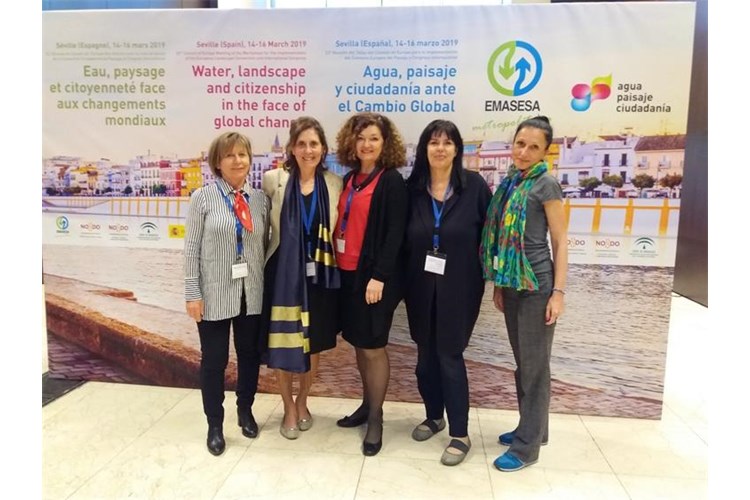From 14 to 16 March 2019, the Spanish city of Seville hosted the 22nd Council of Europe Meeting of the Workshops for the implementation of the Council of Europe Landscape Convention on “Water, landscape and citizenship in the face of global change”. The Ministry delegation was headed by Assistant Minister Sanja Šaban, and in the programme participated also delegation members Lidija Škec and Ingrid Gojević from the Institute for Spatial Development.
The Meeting of the Workshops was organised by the Council of Europe Landscape Convention headed by the Executive Secretary of the Convention Maguelonne Dejeant-Pons, in co-operation with the Spanish Ministry of Culture and Sport in partnership with the Region of Andalusia and the Municipality of Seville, within the framework of the Work Programme of the Council of Europe Landscape Convention, under which the implementation of the Convention is being systematically monitored. The Meeting gathered around 250 participants, including representatives of the Council of Europe member states that are responsible for the implementation of the Convention, spatial planners, landscape architects, representatives of professional associations in the field of spatial planning (European Council of Spatial Planners ECTP-CEU), the academic community and representatives of bodies and institutions responsible for water.
The Ministry delegation was headed by Assistant Minister Sanja Šaban, and in the programme participated also delegation members Lidija Škec and Ingrid Gojević from the Institute for Spatial Development, Biserka Dumbović-Bilušić, PhD, from the Ministry of Culture, and Doris Kurtov from the International Centre for Underwater Archaeology from Zadar.
The aim of the Meeting was to develop a discussion on the theme of waters, both inland and maritime, as an element of landscape, about the forms of their appearance and their significance in the existential, nutritional, economic, energy and symbolic sense, and in the context of global, especially climate changes. In addition, there were discussions on the manners of water protection, water resources management and water areas, spatial planning of areas that include significant river basins and other inland waters and the sea and the coastal areas, as well as water systems under the responsibility of the public institutions that manage them. During the workshops a detailed description of the water and landscape planning in Spain was presented, as well as the experiences and individual projects of other member states of the Council of Europe, an overview of the ways in which the states protect, manage and plan water surfaces and water as an integral part of the landscape was delivered, and also a large number of individual projects was presented. Particular attention was given to the topic of civil participation and participation in the creation and implementation of water and landscape policies, both of various departments at the national level, as well as of regional and local self-government bodies, public-law bodies, educational institutions, representatives of the planning and architectural profession, non-governmental organizations and the citizens themselves.
Within the workshops, a visit was organized to the seat of the Seville utility company competent for water supply and sewerage and a field tour of several city locations of cultural heritage monuments for which water is an essential element of the landscape. The method of maintaining city water areas, their planning and importance in relation to local climatic conditions was presented.
Programme:
https://www.coe.int/en/web/landscape/22nd
News


